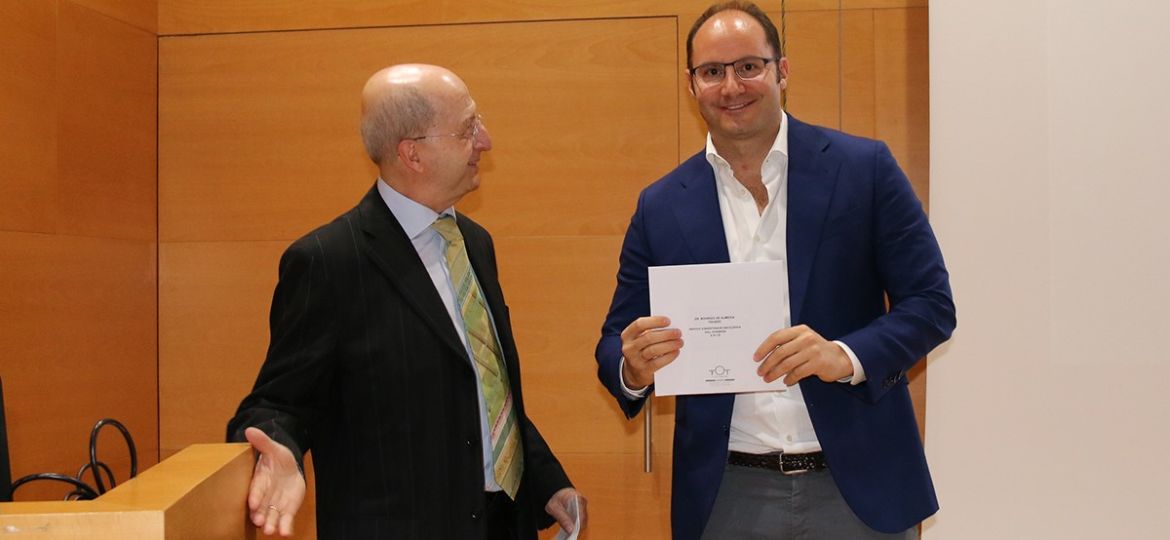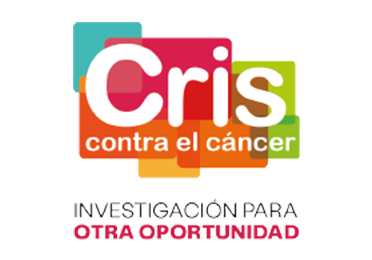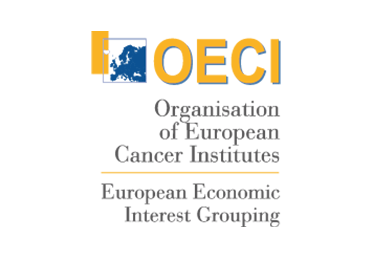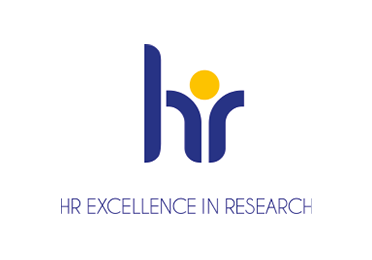
Celebrated last month, the Fundació Olga Torres (FOT) presented two grants totaling at 60.000 EUR each to spur research against colorectal cancer (CRC) – the second most common tumor type with more than 1.3 million new cases and claiming approximately 700.000 lives per year. As a hugely complex disease, colorectal cancer is highly heterogeneous and an individual tumor can be composed of hundreds, even thousands, of different sub-populations of cancer cells. Added to this complicated landscape, these so-called subclones harbor specific molecular characteristics, as distinct mutation profiling and/or gene expression classification. Importantly, CRC responds very differently to currently available therapies and to best track and even predict their next move necessitates the monitoring of clonal evolution, the underpinning of tumorigenesis and detection resistance to treatments in the blood of these patients.
The first of the 2018 FOT awards, under the category for Emerging Investigators, was presented to Rodrigo A. Toledo, Translational Investigator of VHIO’s Gastrointestinal & Endocrine Tumors Group for his project entitled Evaluation of clonal evolution and changes in molecular dynamics evolution of colorectal cancers in patient’s blood. His research will aim to build on his previous research using liquid biopsy to detect to detect KRAS/NRAS/PIK3CA/BRAF mutations in circulating cell-free DNA (cfDNA) from human plasma that has contributed to a more faithful policing of CRC over time, in real time, affording timely insights into both clinical and therapeutic status.
More specifically, Rodrigo will seek to further validate liquid biopsy based on the whole-exome sequencing of plasma cell-free DNA (WES-plasma) that he and colleagues recently developed, paired with the next generation sequencing of selected genes to both measure tumor heterogeneity and better define the clonal evolution of CRCs by evaluating prospective alterations in the number of somatic mutations, changes in cancer mutation signatures and copy number variation (CNV). The precision and performance of WES-tumor and WES-plasma will be compared in order to further establish the clinical utility of both approaches.
“Not only will we seek to further evidence the promise of liquid biopsy in more accurately depicting the genomic landscape of these tumors on time, in time, we will also search for biomarkers of response and resistance in our patient population,” explains Rodrigo.
“The implementation of a platform to monitor clonal evolutions and molecular cancer drivers in blood promises important clinical implications. We will focus on identifying somatic mutations that in turn, can be therapeutically targeted as well as better guide treatment strategies aimed at significantly improving outcomes for our patients,” he concludes.
VHIO Communications also takes this opportunity to congratulate Manel Esteller, Group Leader, Cancer Epigenetics, Bellvitge Biomedical Research Institute (IDIBELL – Barcelona), awardee of the second FOT grant under the category of Consolidated Researcher for his project on the Bioinformatic prediction of chemosensitive profiles in colorectal cancer using Epigenomics.
###










